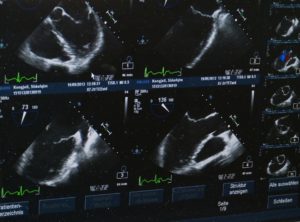Can I Diagnose Myself?
It helps to have an idea of what a hernia is. See Types of Hernia.
In basic terms, a hernia is simply a hole – a hole through which something can protrude. The hole itself is often not really painful (unless the hernia strangulates ) – just uncomfortable when something pushes through.
When something protrudes through the hole – usually intestine or the fat around the intestine – you will see or feel a swelling under the skin. It is the swelling or lump that is there when you stand or cough and that goes away when you lie down. This is the most common and obvious sign of a hernia.
No swelling or lump to see or feel means no hernia, but a hernia is not always obvious to the patient and a proper examination by an experienced practitioner is often required.
Diagnosis
To summarise – in cases where there is an obvious swelling in the areas of the abdomen commonly associated with hernia and which is more obvious when you cough, strain or stand up and which gets smaller or goes completely when you lie down. No other tests are usually needed.
See the section on sport, groin pain and hernia
Would I need any tests, x-rays or scans?
Not usually and even less if you are examined by a clinician with extensive experience in diagnosing all kinds of hernias. However in a small number of cases, where the symptoms are inconclusive, there are special tests that can be performed.
- Herniagram
This is a special x-ray (not often done now, partly because it is ‘invasive’) that involves an injection with a needle. A liquid that shows on x-rays (radio-opaque) has to be injected into the abdominal cavity. If there is a hernia (hole in the abdominal wall) the liquid trickles through the hole and can be seen on the x-ray. It’s sometimes helpful if there is a question about whether a previously repaired hernia has returned (recurred).
- Ultrasound
Similar to the ultrasound exam used on pregnant women. Ultrasound gives a shadowy black and white picture. The result is operator dependent, meaning it depends on who is doing it.
The result is operator dependent, meaning it depends on who is doing it.
- CT scan
Uses x-rays
- MRI scan
Uses magnetism. A good, modern test
However, in the vast majority of cases, special tests are not needed and your doctor or surgeon should be able to confirm just on examination. More challenging diagnoses are best performed by experienced hernia specialists.
Next: Is having NO Treatment a Good Idea?
